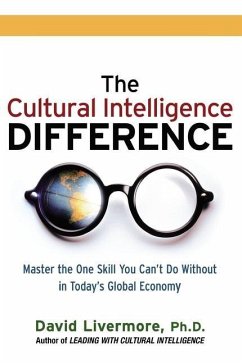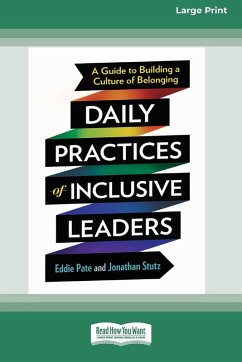
DEI and Intersectional Social Identities at Work
A Communication Approach
Versandkostenfrei!
Versandfertig in 1-2 Wochen
171,99 €
inkl. MwSt.
Weitere Ausgaben:

PAYBACK Punkte
86 °P sammeln!
This book equips readers-both students and communication practitioners--with the theoretical understanding and practical skills they need to support nonprofit and for-profit management to create and assess diversity, equity, inclusion (DEI), and social identity intersectionality goals in their organizations.














